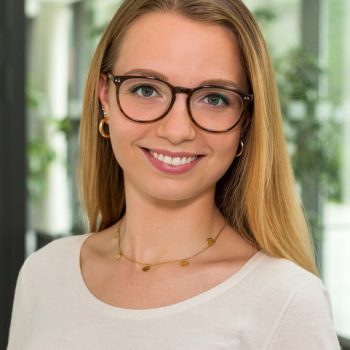
Feminist Foreign Policy: Questioning the Status Quo of Foreign Policy and International Relations
We are extremely happy to announce that we will be able to interview Kristina Lunz, co-founder of The Centre for Feminist Foreign Policy, as a follow up to this introductory article. The interview will be published here on CISS.eu in June.
For centuries, patriarchy has been upheld as a system that defines human existence and continues to shape not only the individual but the public sphere extending up to the highest levels of organizational forms and policymaking. Correspondingly, foreign policy is characterized by patriarchy and based on related values such as supremacy, dominance, and military armament. These principles have yet to eliminate poverty, secure world peace, and guarantee a sustainable management of resources. To achieve the aforementioned aims a strategy change in linking feminism to world politics is strongly recommended.
Feminist approaches to policymaking are not a novum but have been researched by scholars since the 1980s. Leading elements are prevention instead of intervention, civil instead of military measures, a security concept integrating human rights and especially gender, as well as the inclusion of all social groups in policymaking.
In 2014 Sweden was the first country globally to introduce a Feminist Foreign Policy (FFP). This visionary step institutionalized intersectional feminism as a concept on the international stage. Sweden has since been followed by Canada and Mexico, as well as other countries that announced to adopt feminist policies, such as France, Hawaii, Luxembourg, and Spain. Statistics generally show that intersectional feminist approaches to politics do make the world a more secure place. For example, peace negotiations are more likely to last if women are involved in the process.
The Centre for Feminist Foreign Policy defines FFP as an approach that critically reflects on hierarchical global systems and that aims to exalt women’s and marginalized groups’ agencies to overcome the destructive forces of patriarchy, racism, colonization, heteronormativity, capitalism, imperialism, and militarism. FFP offers an intersectional approach, strives towards global equality, a redistribution of power, and a prioritization of human rights. By equalizing representation, incorporating gender and anti-discriminatory perspectives to all decision-making as well as collecting sex-aggregated data among others, FFP moves away from a historically male bias which is responsible for the fact that people who do not define themselves exclusively as male, more than 50% of humanity, are routinely disadvantaged in foreign police. Instead, FFP works towards policymaking with all people in mind. By creating a new outlook on how policies have to be designed and implemented, it has the potential to be the most promising and sustainable method to eliminate poverty and war, growing authoritarianism, fight climate change, and secure a safe future for everyone. It additionally includes the Women, Peace, and Security agenda. However, even goes beyond it calling for a system change and integral reorientation of International Relations on a global scale.
The field of International Relations is subject to processes of change and currently finds itself at a major junction. We now have the opportunity to set out for a future in Foreign Policy that lives up to its promise of peace and security through acknowledging intersectional equality and the discontinuation of international power structures as a central factor to achieving an equal and inclusive world with lasting peace. Feminist Foreign Policy sets out to accomplish this by reversing hegemonic structures and narratives in International Relations.
Detailed information and policy advice on Feminist Foreign Policy can be found at the Centre for Feminist Foreign Policy (CFFP), the Oxford Research Encyclopedia, or the Handbook of Sweden’s Government on Feminist Foreign Policy among others.

Janine Röttgerkamp
Janine holds a B.A in International Cultural and Business studies and currently pursues her M.A. in transcultural studies focusing on migration, international relations and anti-discrimination. She has interned in German and Peruvian Foreign Policy, researched with the Cuban Cultural Research Ministry, has zero tolerance for injustices and is constantly learning more to discover possibilities to make creating a more just society her profession.
